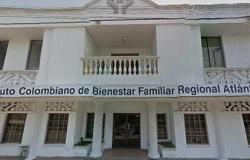A study contracted by the Ministry of the Environment and Sustainable Development with the Humboldt Institute and the National University, to look for alternatives to control the hippos that proliferate in the Magdalena Medio of Antioquia, especially in the jurisdiction of Puerto Triunfo, recommended three alternatives: sterilization, relocation to other countries that want to receive them and the so-called ethical euthanasia.
The first two are welcomed by the environmental authority CORNARE and by the inhabitants of the area; But the sacrifice of animals is rejected by the different sectors involved, because they are living beings that, like everyone else, have the right to subsistence.
The debate focuses on the fact that hippos are an invasive species in this territory and as such can affect biodiversity and, in fact, there have been complaints about the decrease in fishing in the rivers and lagoons where they have been located, in addition to the fact that they compete with other species for their diet, which is basically vegetarian. The issue is no longer regional or national; But many international animal protection organizations are already intervening and have expressed interest in transferring some of them to zoos and sanctuaries located in countries such as India, the Philippines and Mexico.
Current situation
In recent months, the Association of Zoos and Wildlife Sanctuaries of Mexico, through its President Ernesto Zazueta, announced its interest in transferring about 10 specimens to that country and taking charge of the transfer to India of another 60 individuals, to which requested authorization from the Ministry of the Environment and Sustainable Development, as the national environmental authority.
The biologist, David Echeverri López, Head of the Biodiversity Management Office of Cornare, environmental authority of the jurisdiction where the hippos are, told The Eastern Press They are still waiting for the Ministry of the Environment to give way to the Cites permit, which is what is required to legally transfer the hippos to rescue centers and zoos located abroad. “The entities that have shown interest in receiving and financing the transfer of the animals still maintain that interest; “But we are still waiting for the Ministry to review the documents that have been sent, referring to the step by step for the relocation,” explained the Regional Corporation professional.
The Cites permit to which Echeverri López refers is because Colombia is part of the Convention on International Trade in Endangered Species of Wild Flora and Fauna, which aims to ensure that international trade in specimens does not constitute a threat to them. .
Meanwhile, sterilization processes continue to be carried out in a population center located in the Doradal district, in the municipality of Puerto Triunfo, for which an agreement signed between Cornare, the Government of Antioquia and with the Ministry of the Environment is being executed. carrying out fattening, capture and sterilization activities, a procedure that they have applied to 11 individuals in the last seven months, plus another 15 that had been sterilized before. Additionally, – it was indicated – that socialization work continues to be done in the community of Puerto Triunfo, to explain the behavior of these animals that experts consider are not dangerous, unless they feel threatened.
Colombian hippos
Remembering that in the 1980s, a male and three female hippopotamus were brought to Hacienda Nápoles in Doradal and that currently there are between 160 and 200 individuals, most of them were born in Colombia, even if they belong to an invasive species.
As such, they already have animal rights groups that defend them, not only for being Colombians, but for being living beings. In January 2021, the “Protective Commission for the Life of Hippopotamuses” was created in Puerto Triunfo, which has carried out a series of actions before the national, departmental and municipal governments and before Cornare, to follow up on the processes of sterilization and translocation of specimens. It has also been a legal fight in defense of hippos, as sentient beings whose lives must be preserved.
“Our intention is so convincing that our voice has been heard internationally by sanctuaries that are dedicated to rescuing large animals in danger and that already have everything ready to rescue the vast majority of hippos,” said Commission spokespersons. Precisely, on May 13, a march was held from Hacienda Nápoles to Doradal, to categorically reject the alternative of applying “Ethical Euthanasia” to hippos and one of the banners said, “Colombian hippopotamus, unique in its species. This is her house”.
The good side of hippos is that they have become the main tourist attraction for those who visit the Hacienda Nápoles Theme Park, a place that is already regional and in Doradal there are already guides for sighting these animals; That is why the Mayor of Puerto Triunfo, Franklin Portillo, supports the actions of the Protective Commission.
While awaiting authorization for the transfer of 70 hippos to India and Mexico, a specialized company has already designed the crates that would be used, each one must resist up to 3.5 tons and the logistics would consist of transporting them in trucks to the José María Córdova airport in Rionegro, to board them on a plane to their expected destination.






